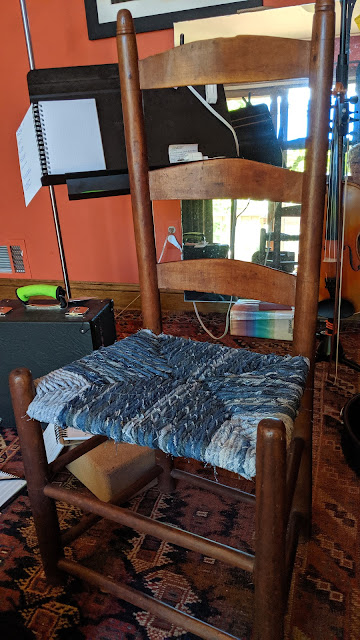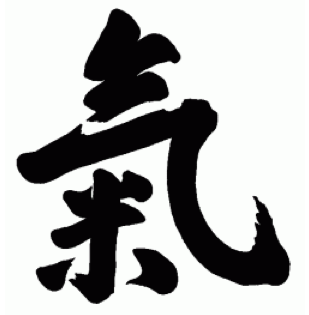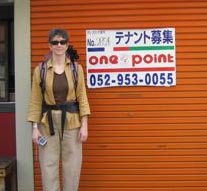Mukudoku: No Reward Whatsoever
"I had my weekly tea ceremony class yesterday, and, as usual, there was a scroll hanging from the wall of the alcove. Generally, these are chosen for the occasion, though sometimes they are more general, but in the spirit of the way of tea.
"This one said 'Mukudoku.'
"My teacher tried to explain what it means, but it's one of those difficult Eastern concepts that's hard to express in English, especially if your English isn't fluent. Later, she emailed us with a fuller explanation:
"There is a famous dialog between Bodhidharma, the first patriarch of the Zen school of Buddhism, and Emperor Wu. The Emperor Wu said to Bodhidharma, “I am a faithful Buddhist, I built many temples and made various offerings to monks. What kind of reward can I expect?” To this, Bodhidharma answered, 'Mukudoku - no reward whatsoever.' "In our daily life we often, even unconsciously, do things with the expectation of reward. We believe that our good deeds will be praised by others, or, if we don't get the praise in this life, we will get it in the "hereafter." Conversely, whenever someone does something bad, we are angry if that person is not punished, and we may comfort ourselves with the thought that God, or the Universe, or Karma, will provide punishment at some future time.
Mukudoku means to let go of the entire concept of reward and punishment and to live our lives with the understanding that every moment, whether beautiful or painful, is exquisite and perfect.
If you feel that you are far from being able to understand, or accept, a world in which there is no cosmic reward or punishment, don't worry: you have a lot of company! But it can be very liberating to practice living life just for the living of it, not for some future expectation. Simply being alive as a human being, in whatever unpleasant painful state we find ourselves, is a reward. What would be the alternative, after all? Being not-alive? Being alive as a cicada? My practice is to live that life, and to live it with compassion if possible. Did I mention it was a practice?
Thanks to Steven Syrek for the story.




Comments
Post a Comment